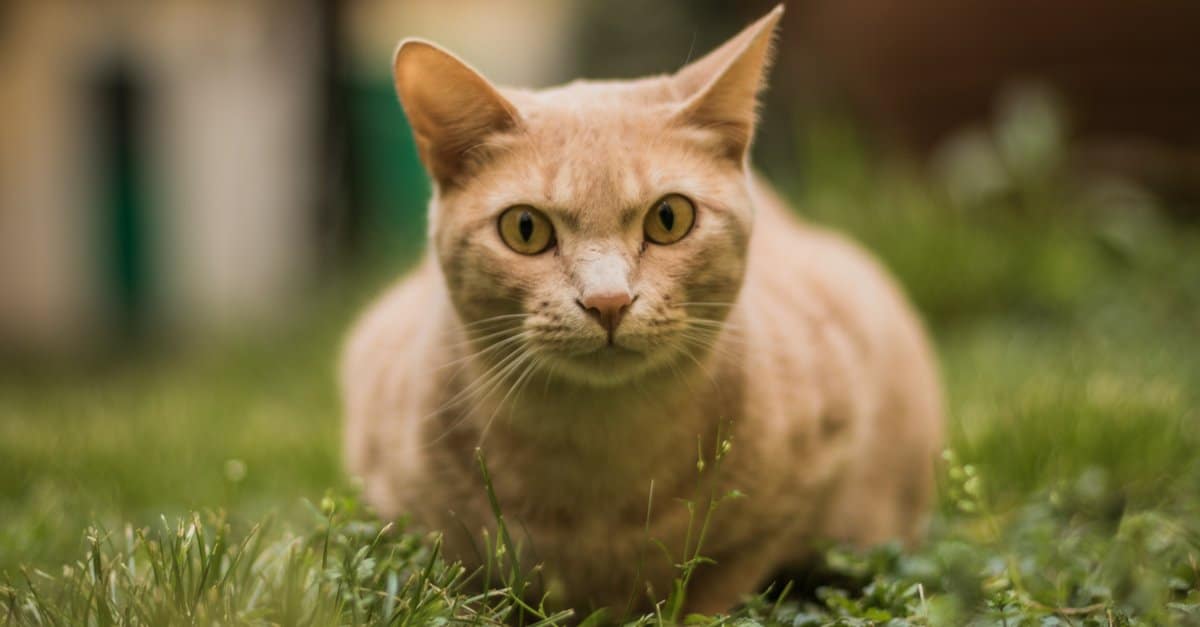Have you ever been gardening, only to stumble upon a pile of cat poop? Maybe you have a stray in the neighborhood. Or maybe your feline companion likes to explore your backyard, occasionally leaving behind stool when the need arises.
No matter where the cat poop in your yard originated, it’s important to understand that it should be removed from your yard the moment you find it. Feline feces can leave behind everything from dangerous viruses to parasites, and it can even contaminate the environment.
Let’s discuss the 10 reasons why you should never leave cat poop in your yard!
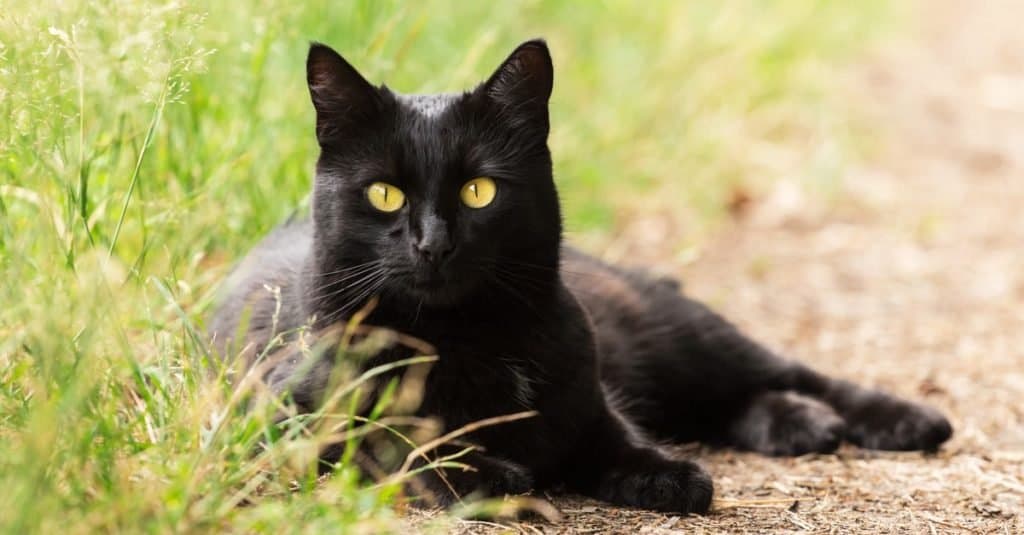
Cat poop can leave behind dangerous viruses and parasites, and it can contaminate the environment.
©Viktor Sergeevich/Shutterstock.com
1. Cat Poop Can Spread Bacteria & Viruses
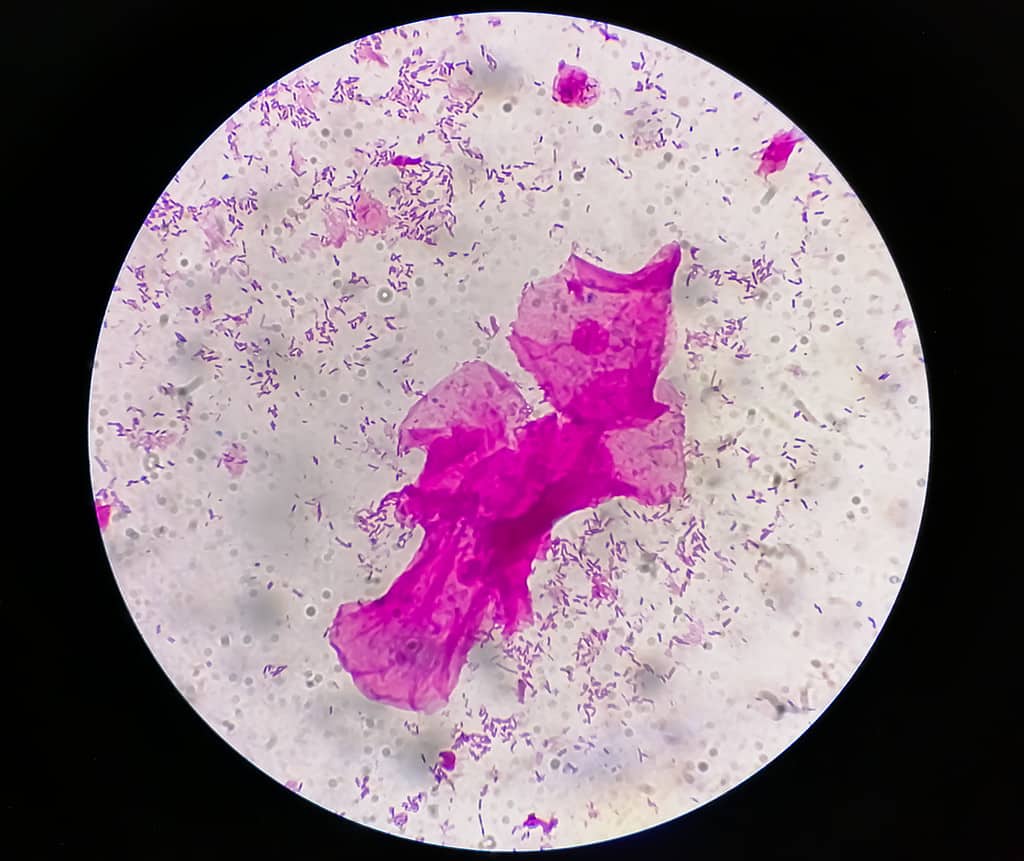
Cat poop may contain toxoplasmosis, salmonella, and E. coli, each of which can infect humans.
©iStock.com/Md Saiful Islam Khan
Bacteria and viruses found in kitty feces can not only put your pets at risk if they come in contact with it, but it can harm you as well. Cat poop may contain agents such as toxoplasmosis, salmonella, and E. coli, each of which can infect humans.
It can also contain a variety of infectious diseases that can impact other cats. T the most common infectious diseases spread through cat stool include feline coronavirus and panleukopenia, and these viruses can be fatal if an unvaccinated cat comes in contact with the infected poop.
Dr. Amy Nicole Lewis, a veterinarian with Worldwide Veterinary Services told A-Z Animals that direct contact with infected stool can cause serious harm to an unvaccinated cat or kitten. Your cat can be infected with panleukopenia or coronavirus by either consuming the infected stool, or even licking their paws after stepping on the stool. It’s important to check your yard regularly for any unknown cat stool if your feline friend likes to spend time in your garden.
2. It May Contain Parasites
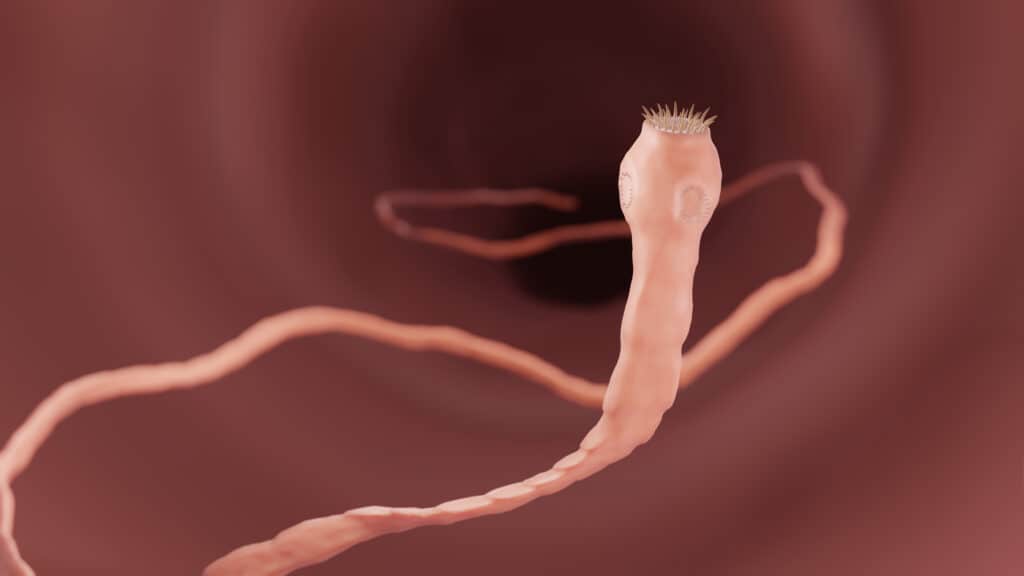
Some common parasites in cat poop include roundworms, hookworms, tapeworms, coccidia, and giardia.
©iStock.com/Artur Plawgo
Cat poop can carry a variety of intestinal parasites that can infect both you and your pets. Some of the most common parasites include roundworms, hookworms, tapeworms, coccidia, and giardia. These parasites pose a risk to your pets if they happen to ingest the stool or groom themselves after touching the stool, but some of these critters can impact humans as well.
Hookworms can easily infect humans if you accidently step on the parasite, allowing these critters to enter your body through the skin. Other parasites like roundworms, coccidia, and giardia can infect humans if we accidentally consume any fecal material that is present on our hands. As you can see, leaving kitty feces in your yard is a health threat to everyone in the home.
3. Cat Poop Can Smell Foul
Cat excrement is known to have an unpleasant odor and is often considered more pungent than dog poop. Cats are obligate carnivores that require a diet high in animal tissue, so their bodies are naturally more efficient at breaking down proteins and fats. This mean that their stool will contain large amounts of broken-down protein, and the protein in their poop makes it extremely smelly. Your yard or garden can get stinky if feline feces is left to fester.
4. Cat Poop May Attract Vermin
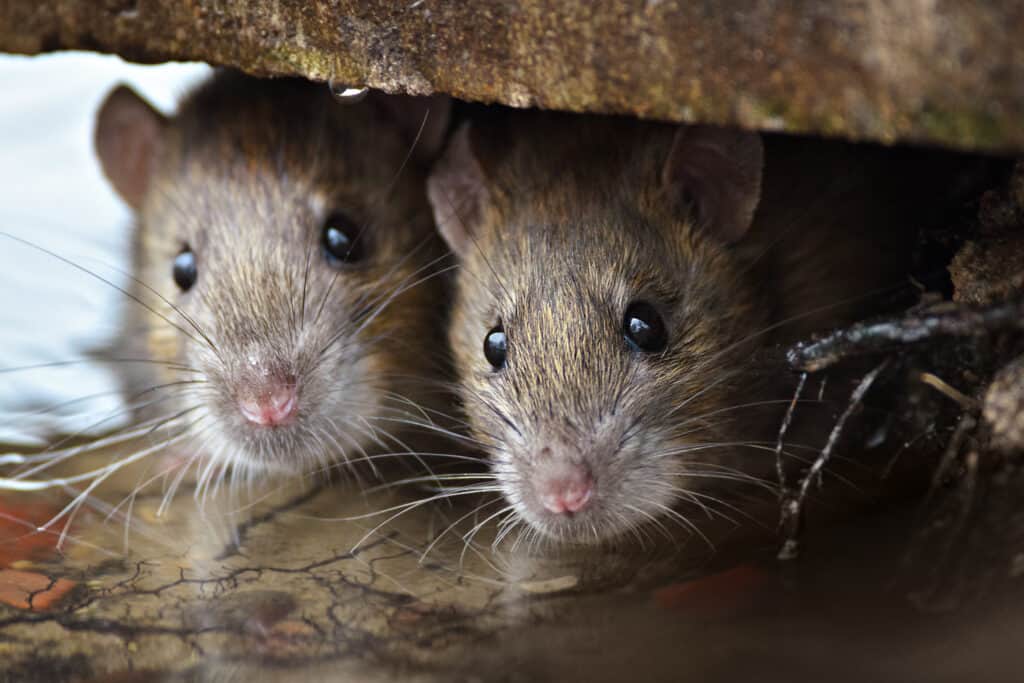
The pungent smell of cat poop can attract vermin to your yard.
©Gallinago_media/Shutterstock.com
The pungent smell of cat poop can attract vermin to your yard. Rats are often very interested in kitty excrement due to the smelly protein and fat content. Not only are rats an unsightly guest, but they carry dangerous illnesses that can infect you and your pets. A fatal bacterial infection called Leptospirosis can be spread to pets through contact with the rat’s urine, and once your pet is infected, they can spread to illness to you!
5. It Can Attract Flies
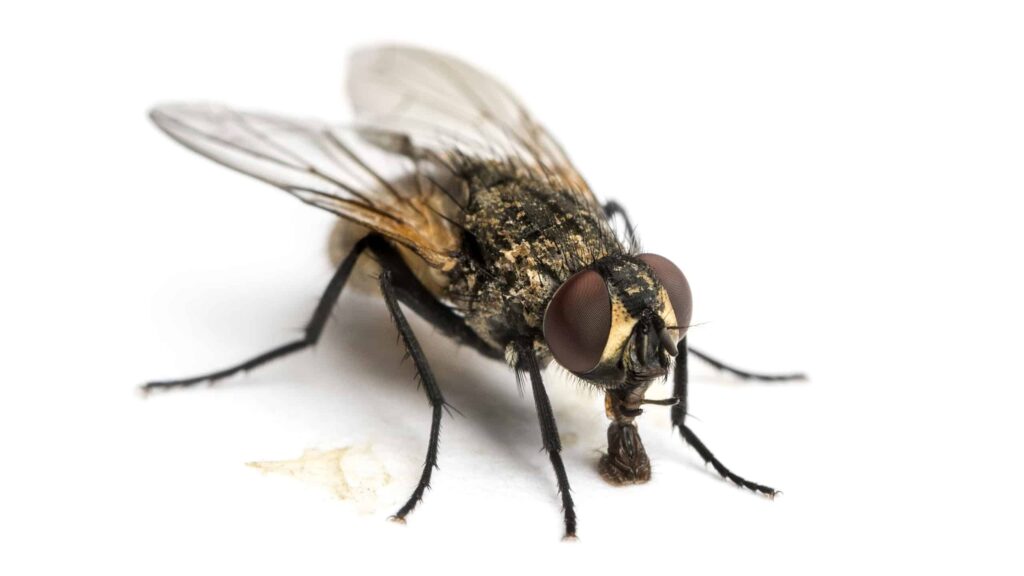
Cat poop is an attractive food source to flies.
©Eric Isselee/Shutterstock.com
Cat poop is an attractive food source for flies. Smelly kitty waste will not only encourage flies to spend time in your yard, but it can lead to an entirely new generation of flies in your yard as well. Flies will often lay their eggs in the feline stool itself, and within days, new flies will be calling your yard home.
6. Your Pets May Roll in it
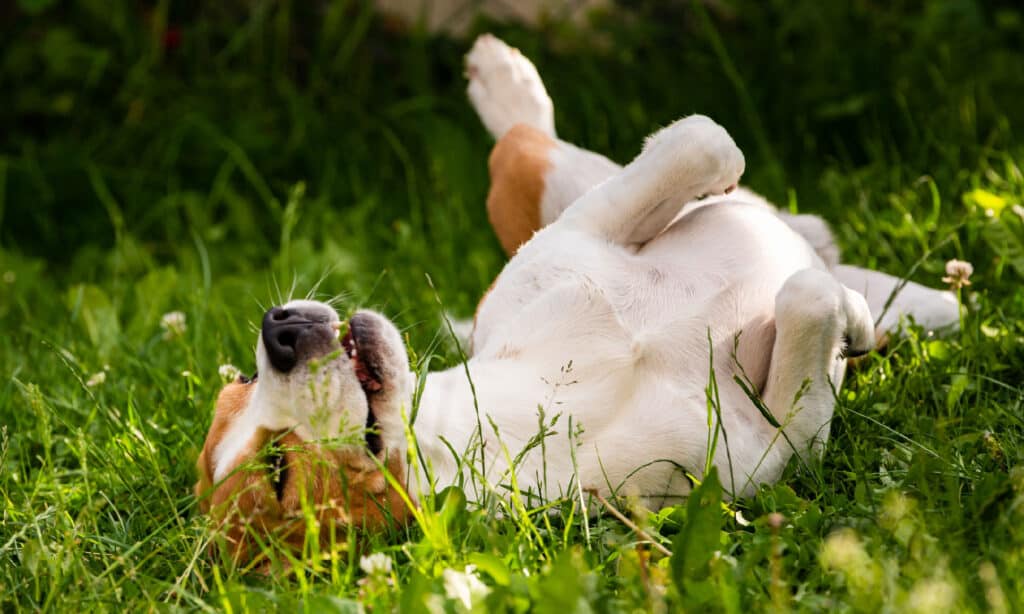
Dogs may be tempted to roll in any animal poop found in your yard.
©iStock.com/Przemysław Iciak
Do you have a canine family member? If so, then they may be tempted to roll on any animal poop found in your yard. Experts believe this behavior stems from ancient canines trying to mask their scent as they hunted, helping to hide their presence from any unsuspecting prey. Your dog may no longer need to hunt for their food in the forest, but they may still roll around on any smelly items they find. A dog that rolls around in cat poop can quickly stink up your home!
7. You May Step in it
There’s nothing worse than stepping on a pile of kitty-cat dung as you walk through your yard. Not only is this gross, but this can expose you to any parasites that could be present in the stool as well. This is especially risky if you have any small children that play in your yard, as they may not understand the importance of immediately washing their feet or hands if they stumble upon feline poop.
8. Cat Poop Takes a Long Time to Break Down
Many assume that kitty poop is a natural product that will break down quickly when left outdoors, but this is not the case at all. Studies show that cat poop can take up to a year to break down completely. This means that it can pose a risk to you and your pets for an extended period before it finally breaks down, so it is not worth the risk of allowing it to break down on its own over time.
9. It Can Pollute the Environment
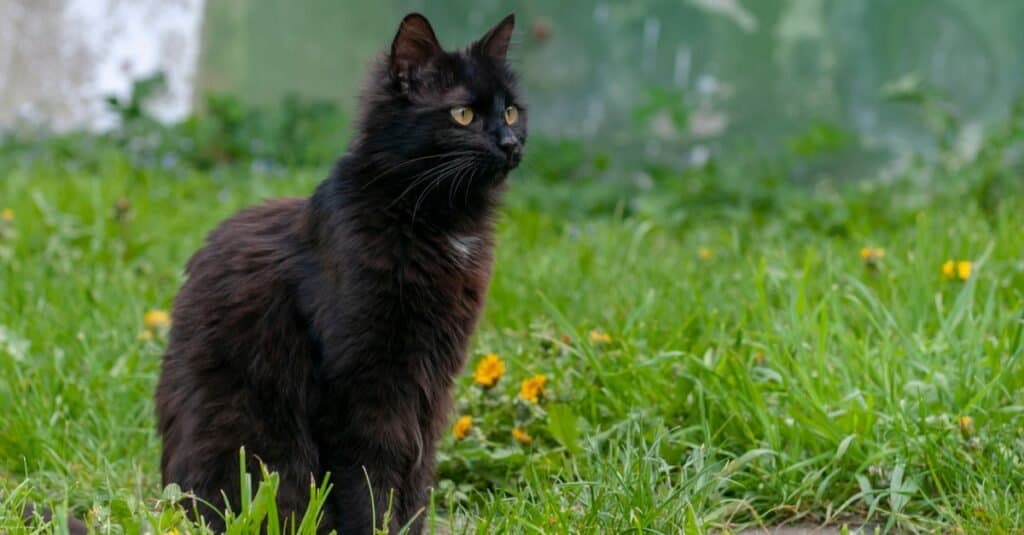
Cat poop can contaminate the environment around you through a process called leaching.
©Ciprian Gherghias/Shutterstock.com
You may have fencing surrounding your yard, but your yard is still part of the environment! Cat and dog poop can pollute the environment through a process called leaching, and this occurs when the nitrogen and phosphorus present in stool makes its way into nearby streams and rivers. Rain can easily break down stool and wash it away, sending it into nearby water sources. A tiny pile of cat stool can pose a major risk!
10. Cat Poop Can Contaminate Your Soil for Gardening
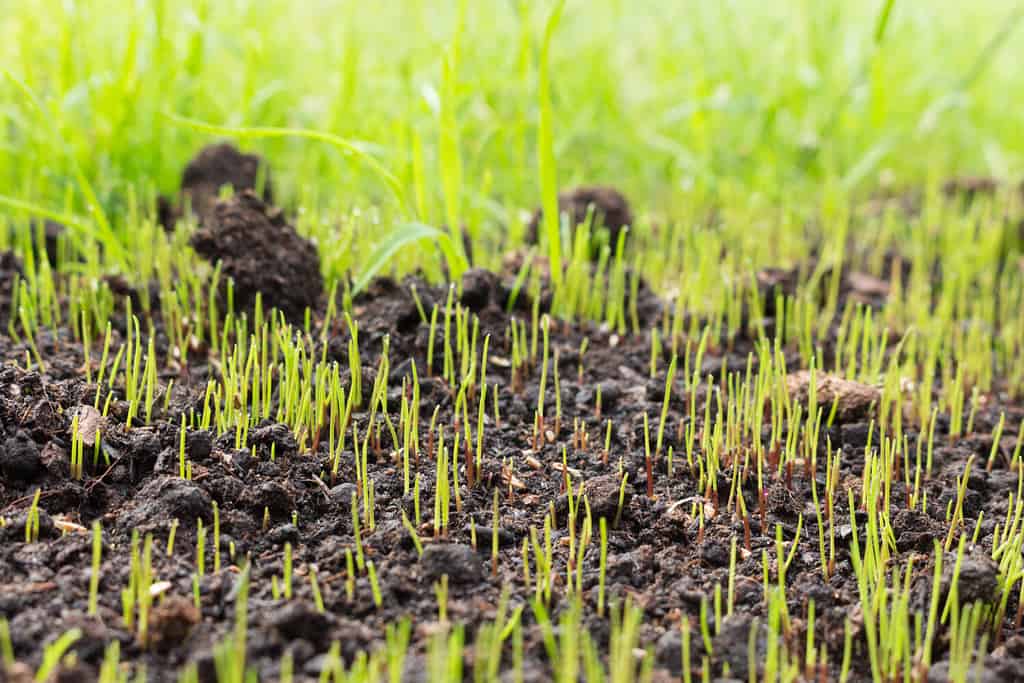
Soil contaminated by cat poop can be dangerous for gardeners.
©philmillster/Shutterstock.com
You don’t want any cat poop in your yard if you are a gardener! It can contain bacteria, viruses, and parasites, each of which can potentially harm you if you come in direct contact with the stool Gardening requires you to be up close and personal with the soil in your yard, so you never want it to be contaminated by kitty stool.
Final Thoughts on Cat Poop in Your Yard
Leaving cat poop in your yard can expose you and your pets to a variety of dangerous illnesses and parasites. It can also encourage critters like rats and flies to spend time in your yard. Removing cat poop in your garden the moment you spot it is best for everyone! Whether this is your own pet’s poop or an unknown feline visitor, it’s best to dispose of it promptly.
Thank you for reading! Have some feedback for us? Contact the AZ Animals editorial team.

